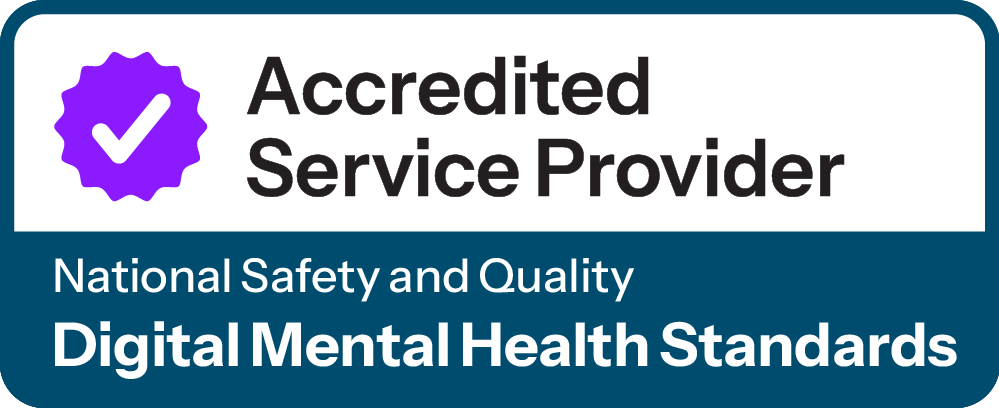Today, on International Day of Friendship, youth mental health organisation ReachOut has released a new report about the impacts of loneliness on young people across the country. The findings include that more than half (57%) of young people are concerned, stressed or worried about feeling lonely.
The new report is based on a national survey by ReachOut of over 660 young people aged 16 - 25 years. Of the young people who reported loneliness as one of the most concerning issues for them, stress related to feeling lonely is manifesting in different ways including: having a moderate to major impact on their mental health and wellbeing (82%), mood changes (75%), sleep issues (64%), changes to appetite (30%) and challenges with relationships (50%).
Gender, sexuality and location played a factor when it came to young people’s experiences of loneliness:
- 69 per cent of women and 60 per cent of non-binary and gender diverse young people identified that they were feeling lonely, compared to 40 per cent of males.
- 70 per cent of LGBTQIA+ young people reported feeling lonely compared to 51 per cent of heterosexual young people.
- 65 per cent of young people living in regional and remote areas said they were feeling lonely, compared to 55 per cent of young people living in major cities.
CEO of ReachOut, Ashley de Silva, said that International Day of Friendship was an important opportunity to highlight young peoples’ experiences of loneliness and to encourage young people to seek support.
“Not only does ReachOut’s new report show loneliness is a major issue for young people across the country, it also shows that it's having a range of impacts on their lives. Loneliness can affect mood, mental health and wellbeing, and other areas of a young person’s life including sleep, appetite and relationships.
“Importantly, this report is not just about numbers. When young people told us about their experiences of loneliness, many expressed a perceived lack of support from their friends and family, a need for closer relationships, a need for people to talk to and hopes to find new connections.
“By releasing this report on International Day of Friendship we want to open up conversations about loneliness, share ways to create connections and encourage young people to seek support,” he said.
ReachOut has support information for young people on loneliness and friendship, an Online Community and one-to-one peer support via ReachOut PeerChat. ReachOut also has information for parents supporting young people on loneliness and friendships, a parents forum and a one-one-one parents coaching service.
MEDIA CONTACT
Tessa Anderssen / tessa@reachout.com / 0411 708 587
KEY STATS
Data from a national survey by ReachOut of over 660 young people aged 16 - 25 years conducted in August and September 2022.
Access full report here.
- 57% of young people are concerned, stressed or worried about feeling lonely.
- Of the young people who reported loneliness as one of the issues of most concern to them:
- 82% indicated stress about loneliness was having a moderate or major impact on their mental health and wellbeing
- 75% were experiencing mood changes
- 64% were experiencing sleep issues
- 30% were experiencing changes to appetite
- 50% reported that loneliness caused challenges with relationships
- Feelings of loneliness were consistent across age ranges: 16-18 years (57.3%), 19-21 years (58.6%) and 22-25 years (55.6%).
- 69% of women, 60% of non-binary and gender diverse young people and 40% of males reported feeling lonely.
- 70% of LGBTQIA+ and 51% of heterosexual young people reported feeling lonely.
- 65% of young people living in regional and remote areas and 55% of young people living in major cities reported feeling lonely.
- The top 5 things young people said would help them when it came to loneliness:
- Finding new supportive relationships
- Deepening or improving existing relationships
- Access to professional support
- More money
- Someone to talk to
SOCIAL MEDIA
- Instagram @reachout_aus
- TikTok
- Tips for loneliness - IG
- Ways to connect - TT
ABOUT REACHOUT
ReachOut is the leading online mental health service in Australia supporting young people during tough times.
ReachOut helps young people feel better about today and the future, no matter what challenge they’re facing. They provide a safe place where young people can openly express themselves, explore what’s happening in their lives, connect with people who understand their situation, and find the resources to help them manage their challenges now and in the future.
Anonymous, free and 100% online, ReachOut has been designed specifically for – and with – young people. From one-to-one support from experienced peer workers, to online forums, as well as tips, stories and resources, ReachOut offers a wide range of support options that allow young people to engage in the ways they want to, when they want to, and has been doing so for more than 20 years.
And, ReachOut Parents and ReachOut Schools provide valuable information, resources and advice to help parents, carers and educators to better understand the young people in their lives and to play an active role in their wellbeing.
SAFE REPORTING
ReachOut encourages safe reporting about mental ill-health and encourages media to report according to the Mindframe guidelines.






